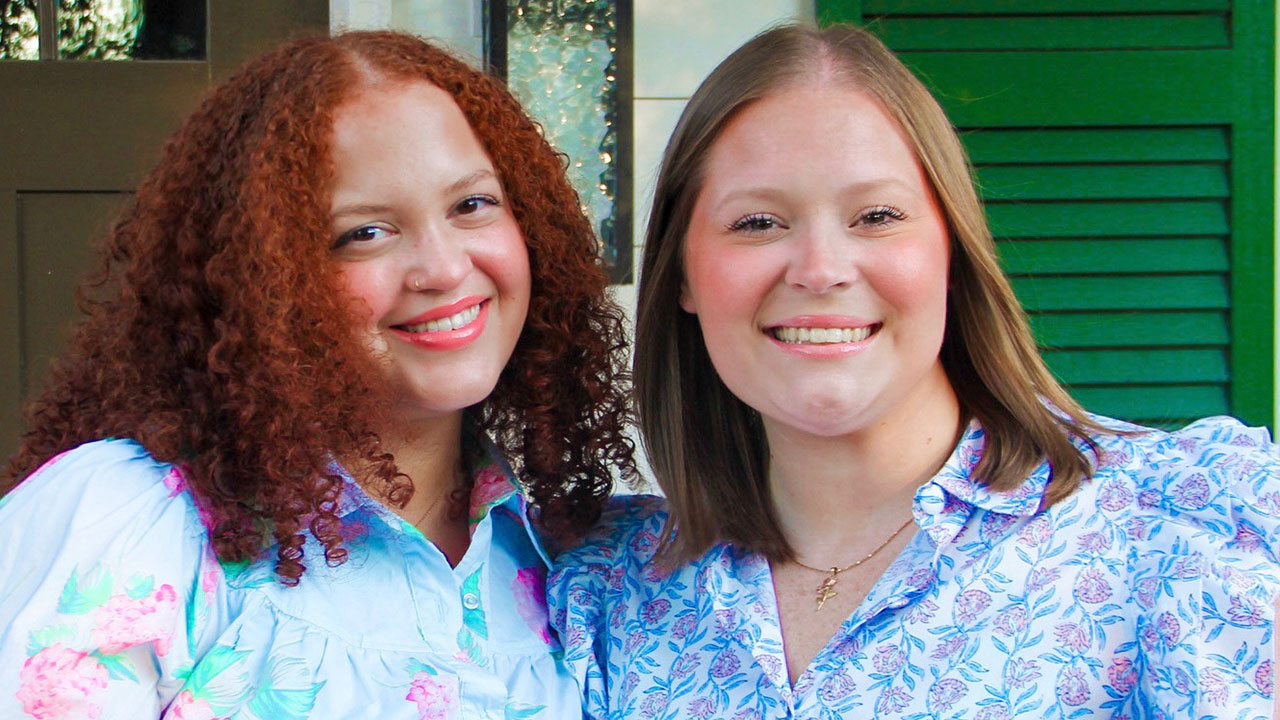content body

Mary Wheelock (left), an elementary education major, and Jessie Barclay, an early childhood/elementary special education major, were the first two fellows in a new Rural Teacher Fellowship program that launched this spring.
Auburn College of Education students Jessie Barclay and Mary Wheelock say they’ve learned a lot while teaching in a rural area.
The two were the first in an initial cohort of the Rural Teacher Fellowship Program that the College of Education and University Outreach began this spring at Eclectic Elementary School in Eclectic, Alabama. The program’s goal? Addressing a shortage of teachers in rural areas of the state.
“Teaching in a rural community is unique. It’s more than just delivering lessons—it’s about becoming part of a close-knit environment where schools are truly the heart of the community,” said Barclay, a Pelham, Alabama, native majoring in early childhood/elementary special education. “The relationships I have built—with students, families, mentors, and colleagues—have shown me that education here is deeply personal. The investment in students isn’t just academic; it’s about their well-being, their growth, and their future in a way that extends far beyond the classroom.”
Wheelock, a native of Marietta, Georgia, majoring in elementary education, agrees.
“It has been such a joy serving alongside Jessie and on behalf of Auburn’s College of Education in the first cohort of the Rural Teacher Fellowship,” Wheelock said. “A little bit of a backstory: Jessie and I have been good friends since freshman year, and we both felt called into action to serve in a rural community during our senior internship. I think I can speak for both of us that this experience has changed our perspectives and ourselves for the better.”
Anna-Margaret Goldman, director of the Center for Educational Outreach and Engagement at Auburn, said the need is great for teachers in rural areas—especially in Alabama where almost half of the state’s students are in an area deemed rural. Research conducted by Auburn College of Education Associate Professor Andrew Pendola shows that many rural schools in the United States are impacted by teacher shortages and turnover and that Alabama, a largely rural state with a high percentage of low-income and minority students, is dramatically impacted by this gap.
Amid such a teacher shortage, the Nation’s Report Card ranks Alabama’s performance for rural students as the third lowest in the United States.
“We believe that every child should have the opportunity for a quality education regardless of where they live,” Goldman said. “The Rural Teacher Fellows program can be part of transforming rural education in Alabama.”
The fellowship program aims to address that issue and has received funding through Auburn’s most recent annual Tiger Giving Day event and through the Daniel Foundation, allowing it to offer student stipends of $3,000 each. Students in the program become a fixture in the Eclectic community, with the group Children’s Harbor partnering to provide the fellows housing near Eclectic in the Lake Martin region. The fellows also meet with local leaders and reflect on their experiences with peers and faculty. Funding is already secured to continue the program through next fall, with the possibility of three to four additional fellowships being available.
Goldman said her office is recruiting for the fall fellowship. Those interested in the program can fill out an online interest form or email Goldman at ayg0005@auburn.edu.
Barclay and Wheelock say they wholeheartedly recommend the program to others.
“When I first decided to apply for this experience, I knew it would be different from anything I had done before, but I could not have predicted just how much it would shape me—not just as an educator, but as a person,” Barclay said.
She added that “One of the biggest takeaways from this experience has been the power of connection. In a smaller school setting, you don’t just teach students—you get to know their families, their stories, and what excites them about learning. The teachers here treat their students like their own children, creating a strong bond that makes school feel like a second home. Because of this, I’ve noticed that students genuinely enjoy coming to school. Whether they love the academic side of learning or not, they still look forward to being here because the environment is so welcoming and close-knit.”
Wheelock said she really enjoyed her classroom experience.
“The most enjoyable part of my experience during our internship as Rural Teacher Fellows has been my classroom,” she said. “I am currently in a first-grade general Ed classroom, and truly, the immediate relationship I have built with my clinical educator (mentor teacher) has allowed me to learn so much. She has a true joy for education, which sometimes I feel like is difficult to come across, especially with the influence of social media. It has been a breath of fresh air to be in a classroom where a love for meeting the needs of every student within the classroom is a top priority.”
Barclay said she’ll never forget being a part of the program.
“As I look ahead to my future in education, I know this experience has given me a foundation that will shape my career,” she said. “It has reinforced my belief in the importance of community-driven education and reminded me that no matter where I teach, the relationships I build will always be at the heart of my work.”




